It is “criminal” to drink cognac from the Extra Old and Grande Reserve categories in regular shot glasses. Connoisseurs of the strong drink will throw stones at daredevils who decided to bypass age-old traditions. To join the closed society of gourmets, choose the right drinking glass. Enjoying the tones of the aromatic bouquet and looking at the sun through the glass, you will pass for one of their own in the circle of true fans of the alcoholic drink.
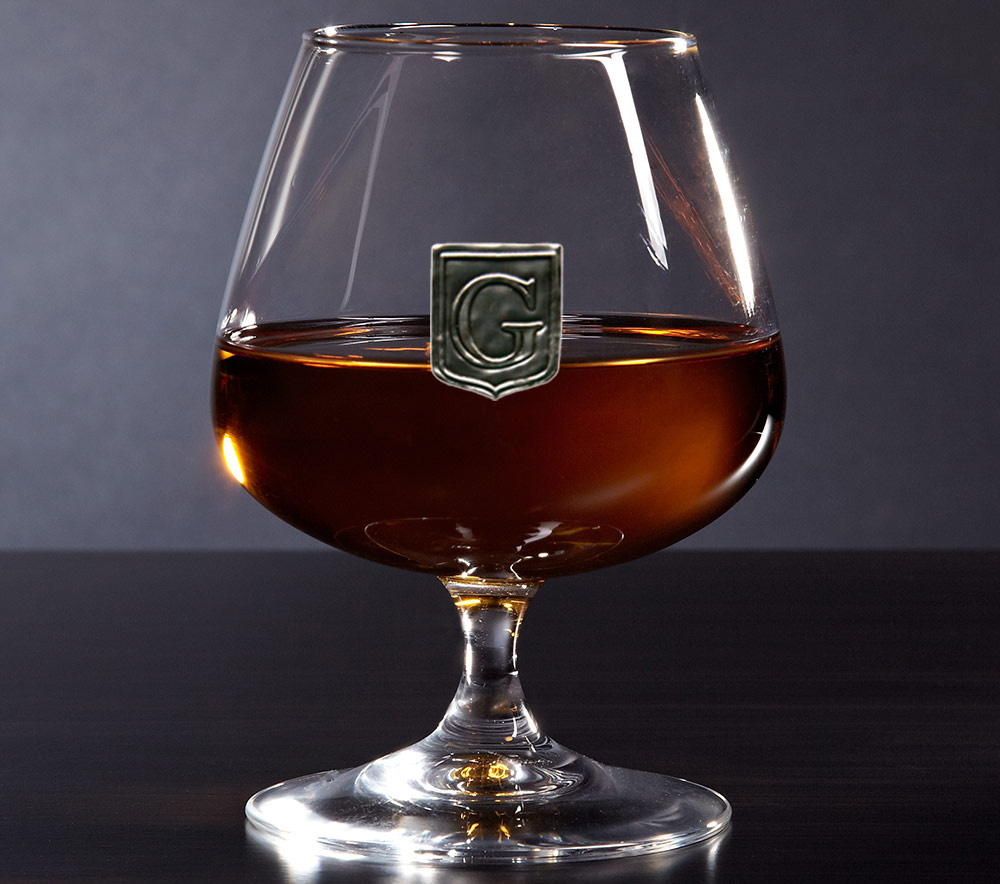
Content
What should a cognac glass be like?
The shape, size, volume, material of the glass - all this affects the taste and aromatic qualities of the drink. It is drunk at room temperature, and the glass is warmed by hands.
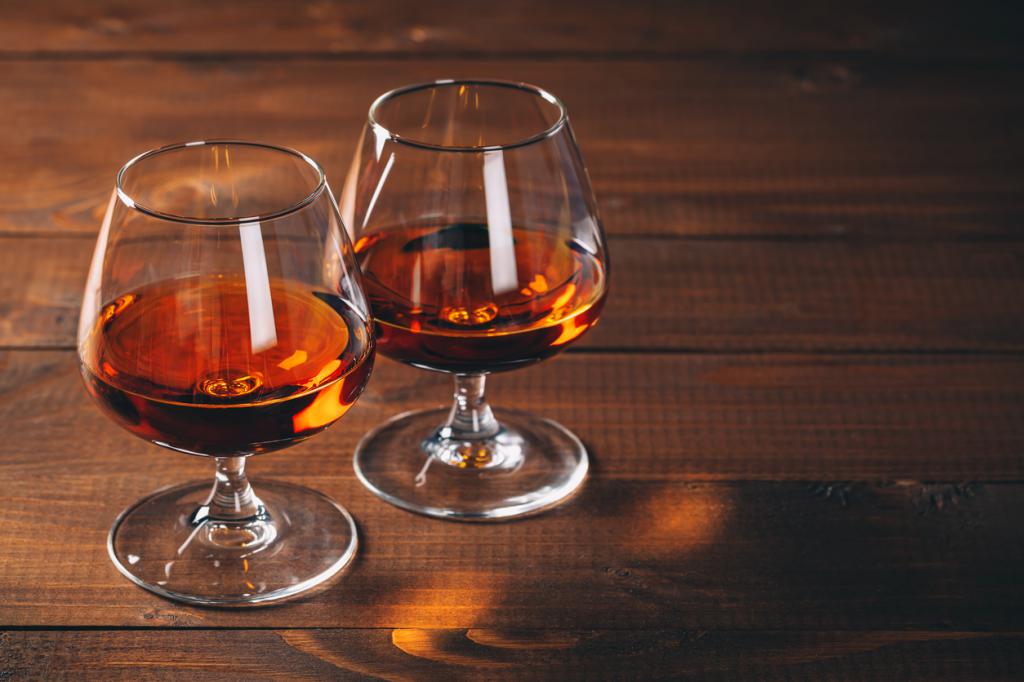
Heat allows the 3 “waves” of aroma distribution to be revealed.
- The first one is felt at a short distance from the glass.
In this case, the filled glass exudes light vanilla notes.
- The second “wave” reveals the full palette of the distillate.
Fruit and floral notes dominate here. When inhaling the aroma, you can smell nuts, coffee, roses, linden, violet and apricot.
- The final "wave" is called the aroma of aging.
Here you can feel a complex tonality, in which woody, spicy and resinous notes prevail. French sommeliers talk about 54 basic shades of aroma that cognacs have.
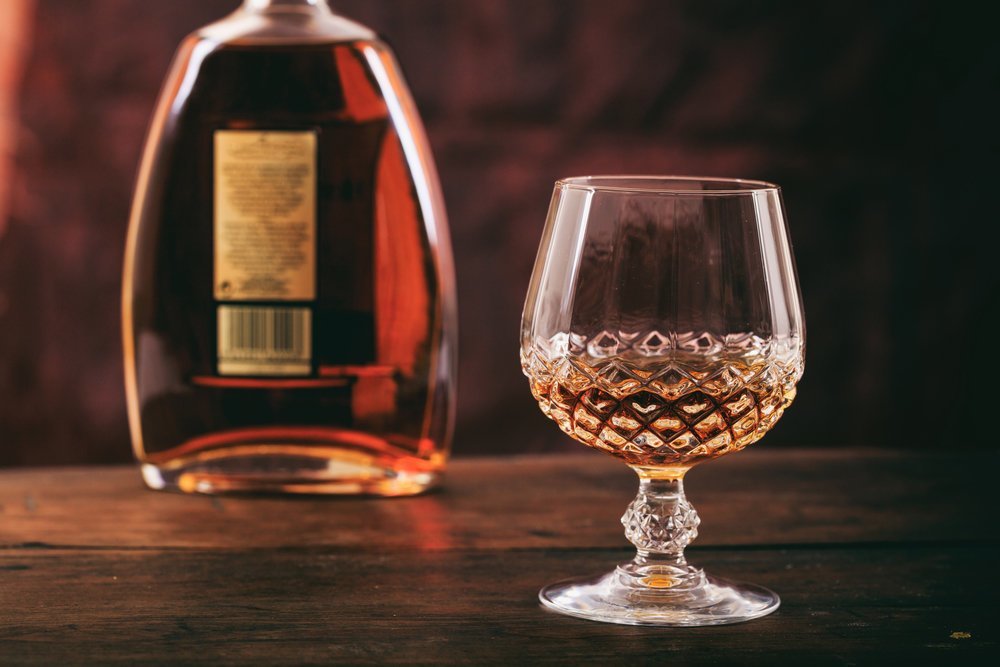
For the bouquet to fully open up, the glass should have:
- wide bowl area;
- tapered conical top;
- comfortable leg.
Glass and crystal cognac glasses are produced. Thin-walled glass and rock crystal are used to produce drinking glassware. The first is a synthetic material, and the second is natural.
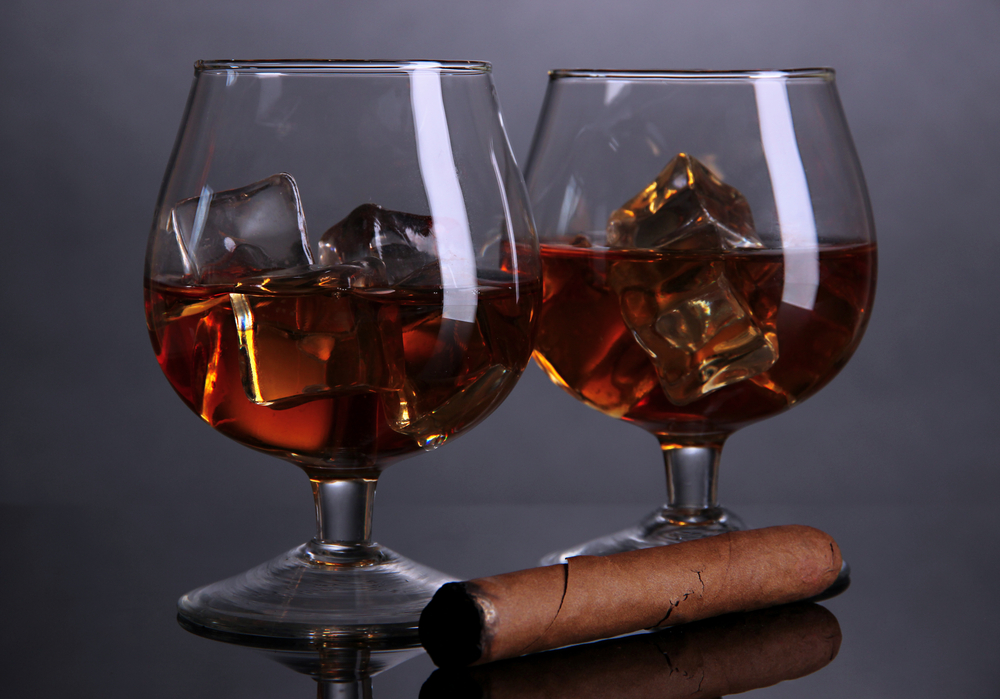
The main advantage of glassware is that it transfers heat well from hands to the contents. But glass glasses break easily, have an uneven structure and become cloudy over time.
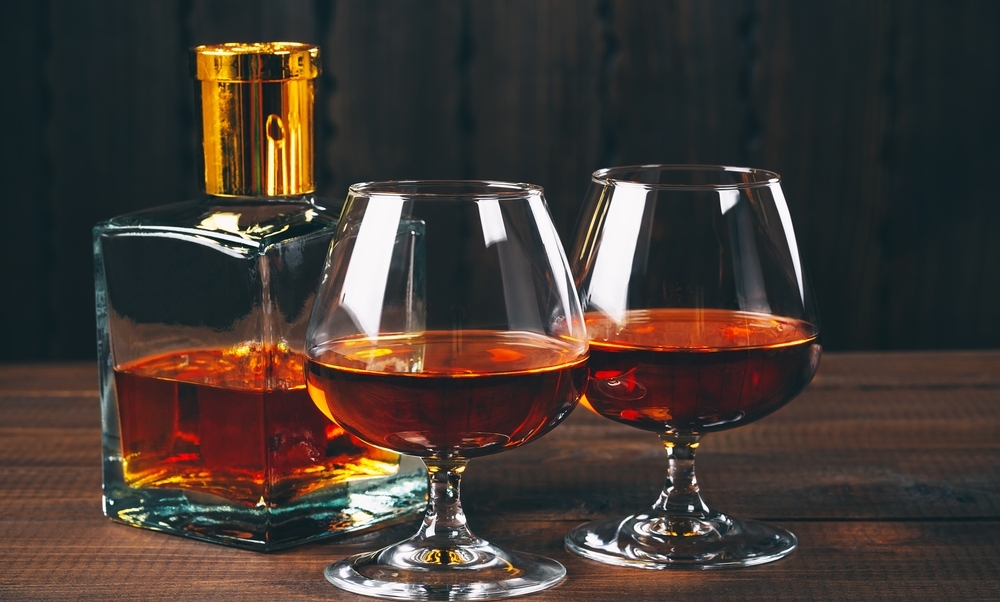
Crystal does not have such thermal conductivity, but it is much stronger, more transparent and more presentable. A crystal glass seems to be created for elite drinks. Manufacturers produce exclusive sets, inlaying them with semi-precious stones, decorating them with a gold imprint and colorful ornament.
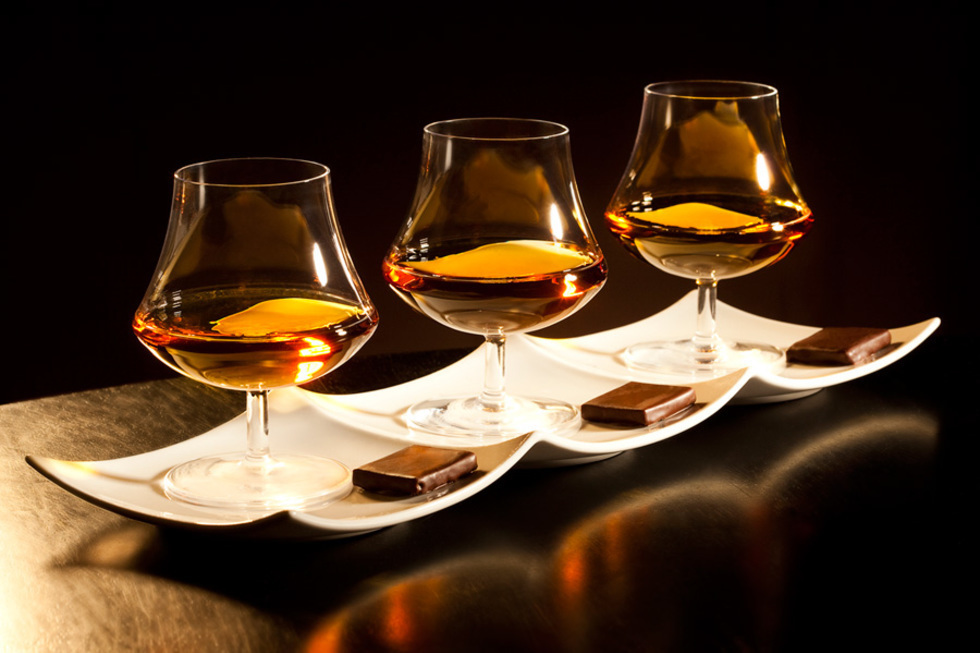
According to etiquette, drinking glassware allows:
- open the bouquet completely;
- experience the diversity of taste;
- consider the color saturation.
The main requirement for a wine glass is ease of use. It should fit comfortably in the palm of your hand. The optimal volume ranges from 125 to 150 ml, but larger wine glasses of up to 800 ml are used at tastings.
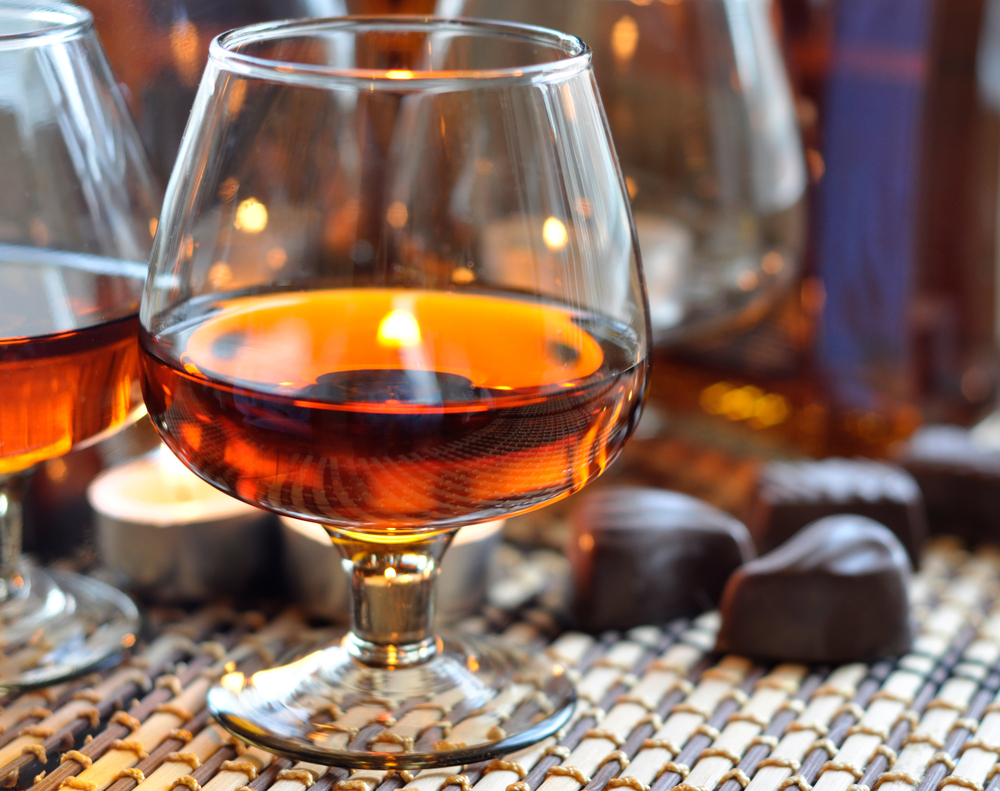
Important! There is an unspoken rule: the longer the drink is aged, the larger the glass. In a large drinking glass, the drink releases its aroma faster, but does not allow it to evaporate into the air.
What shapes are there for cognac glasses and goblets?
The strong drink belongs to the brandy category. In this regard, cognac is often poured into glasses not intended for it. The following types belong to cognac glasses and shot glasses:
- snifter;
- tulip;
- wobble;
- glass with a pipe;
- drop-shaped glass.
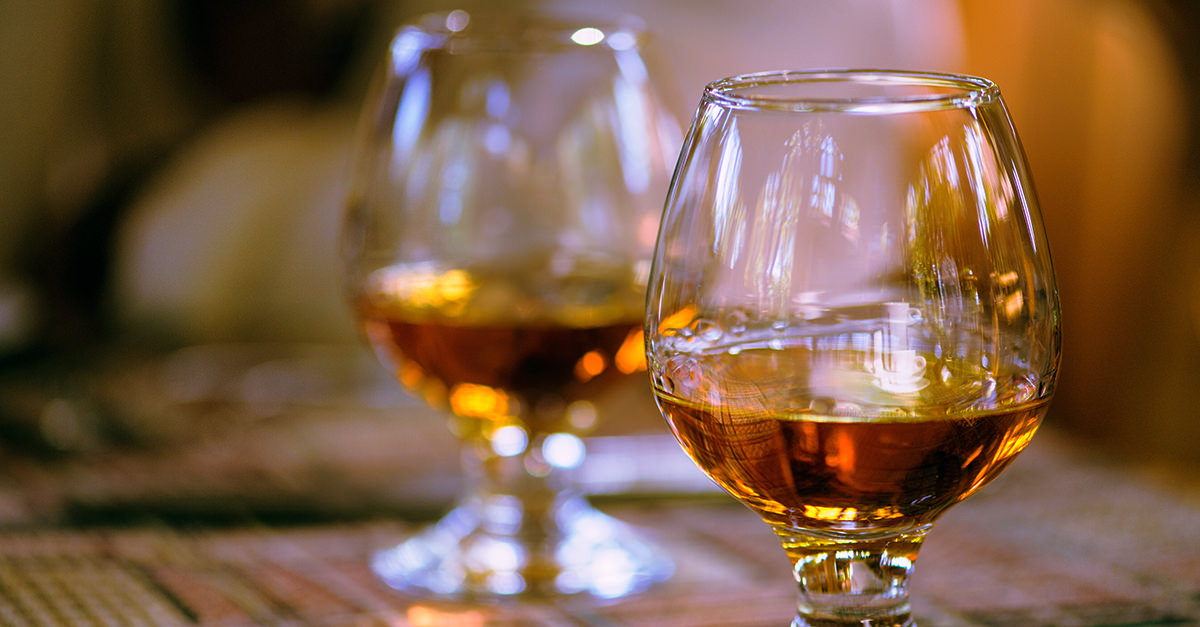
Please note! Each of the listed types has a stem. Unlike its relative, brandy, cognac is not served in shot glasses or similar goblets.
Many people confuse a shot glass and a shot glass. Everyone thinks that these are two names for the same vessel, but this is not true. A shot glass is a small container on a stem, and a shot glass looks like a glass.
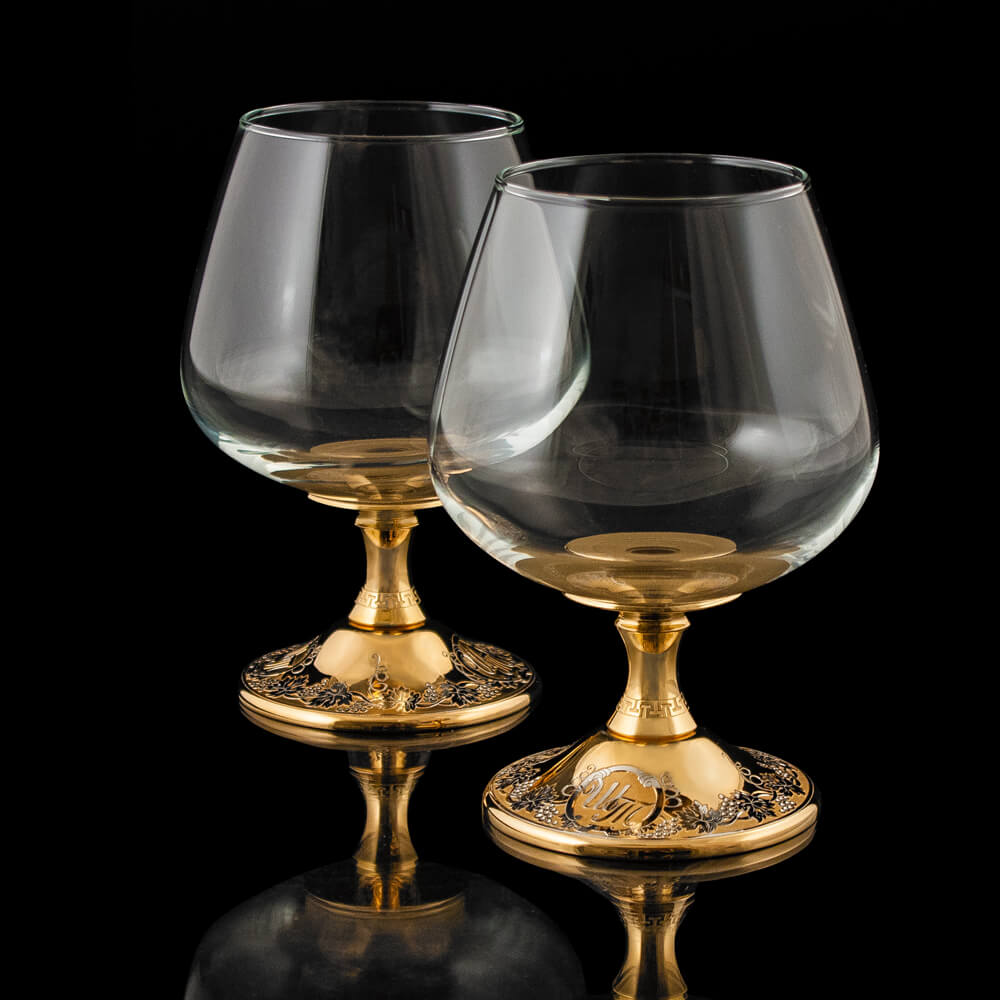
Cognacs should not be served in Old Fashioned Glass, Rocks glass and Nosing glass. All these types are intended for drinking other strong alcohol.
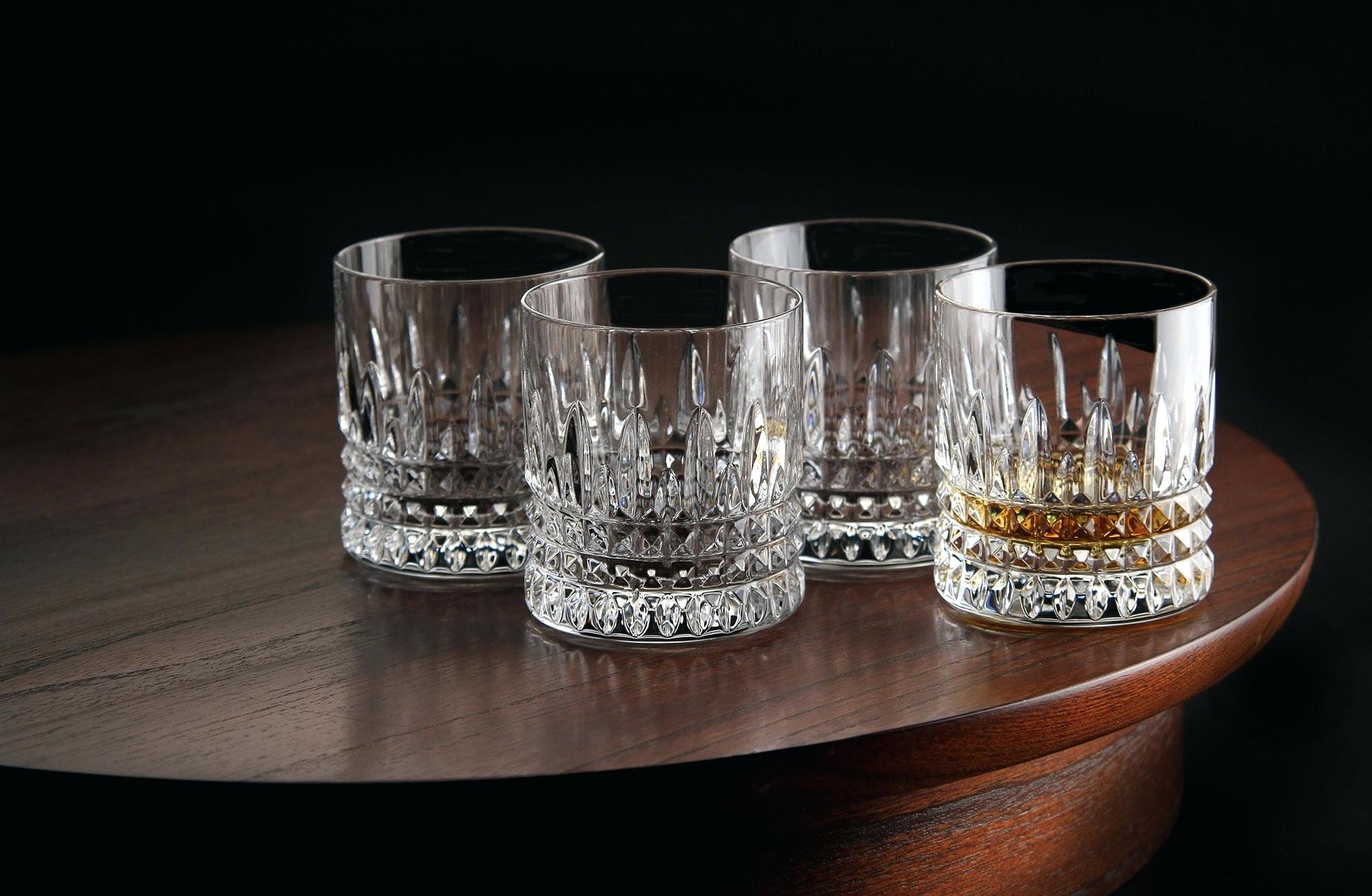
Cocktails made with cognacs are allowed to be served in a tumbler. A cognac glass differs from its analogues in weight, bottom thickness and shape. In a crockery shop you can buy round, rectangular, square, oval and triangular tumblers. Often their volume is from 150 to 300 ml.
Snifter
The classic cognac glass is the snifter. It is the most recognizable and widespread type of drinking glass.
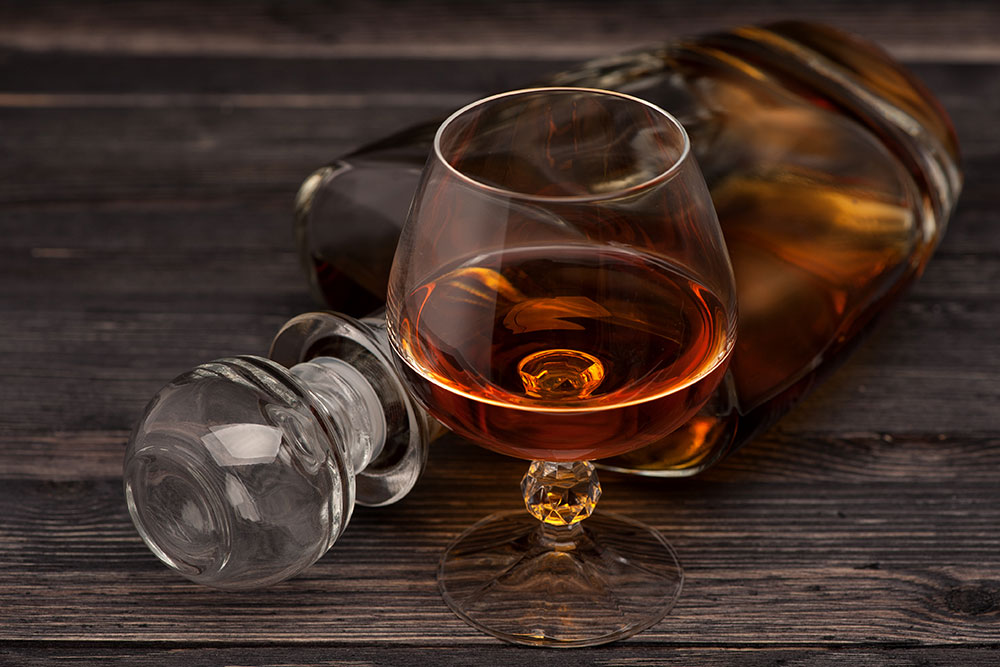
Snifter design:
- spherical bowl;
- conical and narrow neck;
- short leg;
- wide stand.
Thanks to the round shape and narrowed top, the aroma is retained inside the vessel. The alcohol does not spill from an overturned glass. It is comfortable to hold in your hand: the walls of the glass touch the palm, and the drink quickly warms up.
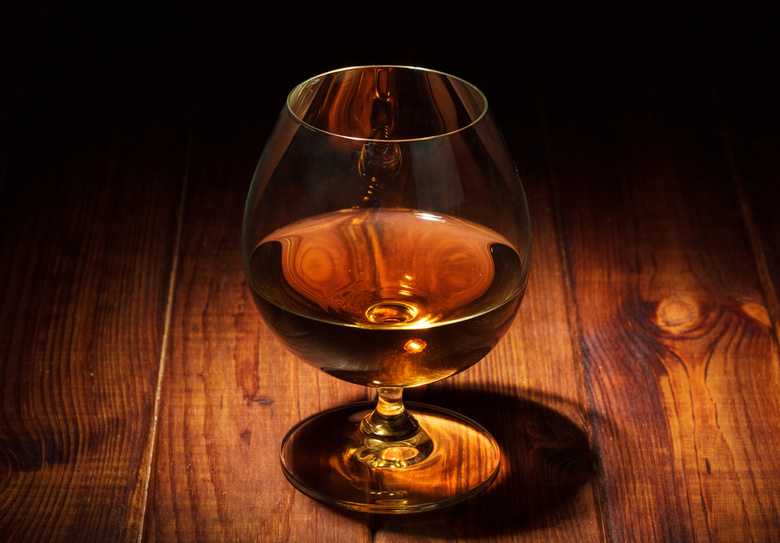
Interesting fact! The original shape of the wine glass was adopted for the production of other goods. Today, vases, candy bowls, florariums and aquariums are produced in the form of snifters.
The volume varies from 70 to 700 ml. Souvenir snifters are produced with a larger capacity. This type is intended for leisurely drinking and tasting. Cognac is poured into the bottom of the glass, filling about ¼ of the glass. Before trying it to taste, look closely at the shades of the amber-golden spirit, inhale the aroma and take the first sip. After feeling the aftertaste, you can sip again and continue drinking the drink with long intervals between sips.
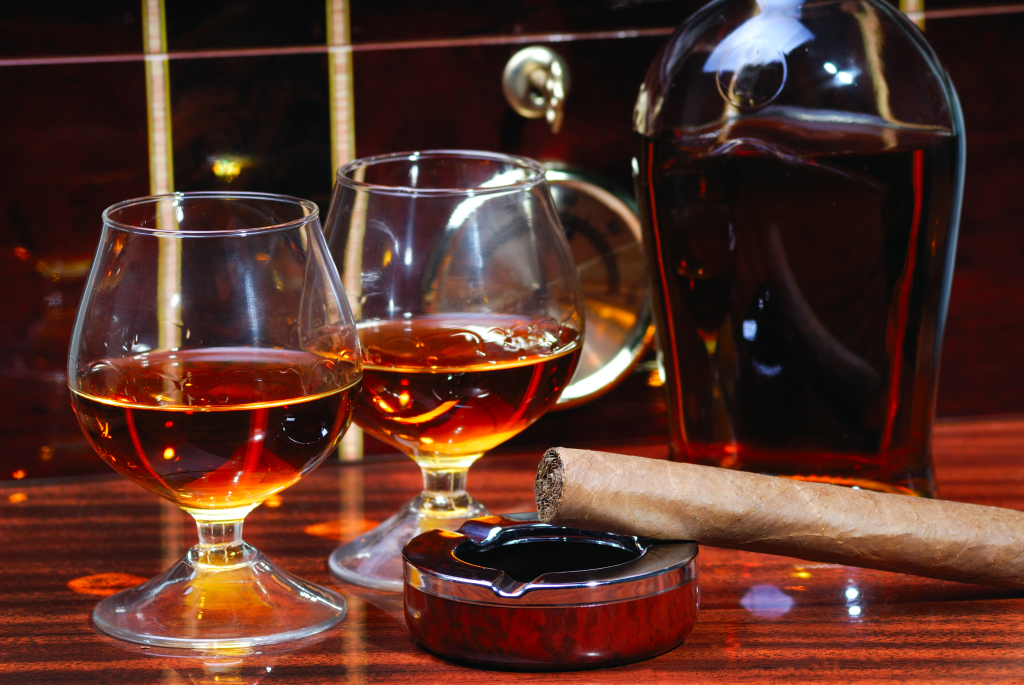
Tulip
The glass lives up to its name. It looks like a flower bud on a thin stem.
Design:
- bowl with a rounded base;
- narrowed neck;
- thin long leg;
- The size of the stand matches the diameter of the neck.
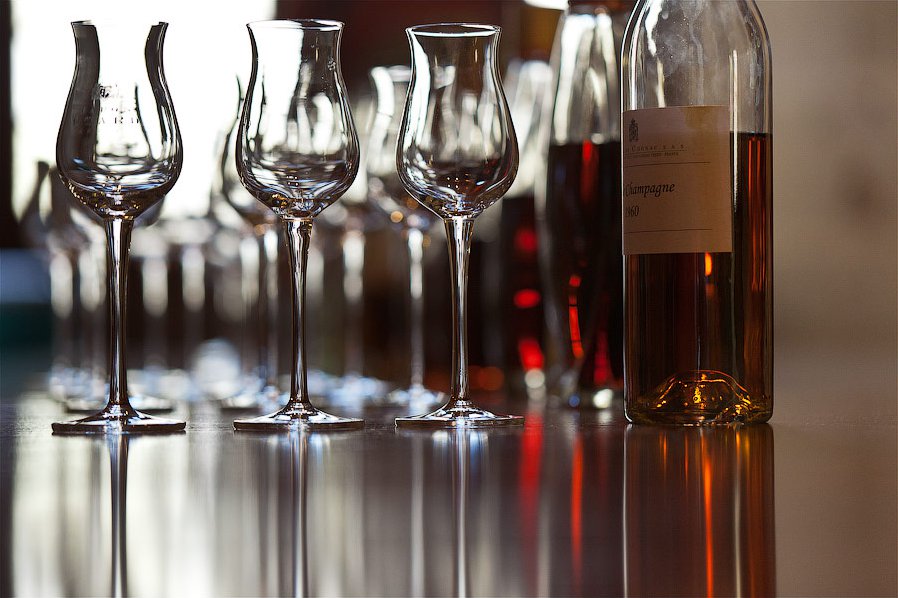
Important! In the homeland of cognac, they prefer to drink from crystal glasses on a stem.
Contrary to popular belief, the French gave the palm to the tulip, not the snifter. Cinema is to blame. On the blue screen you can see yet another mafioso, sipping a strong drink from a snifter.
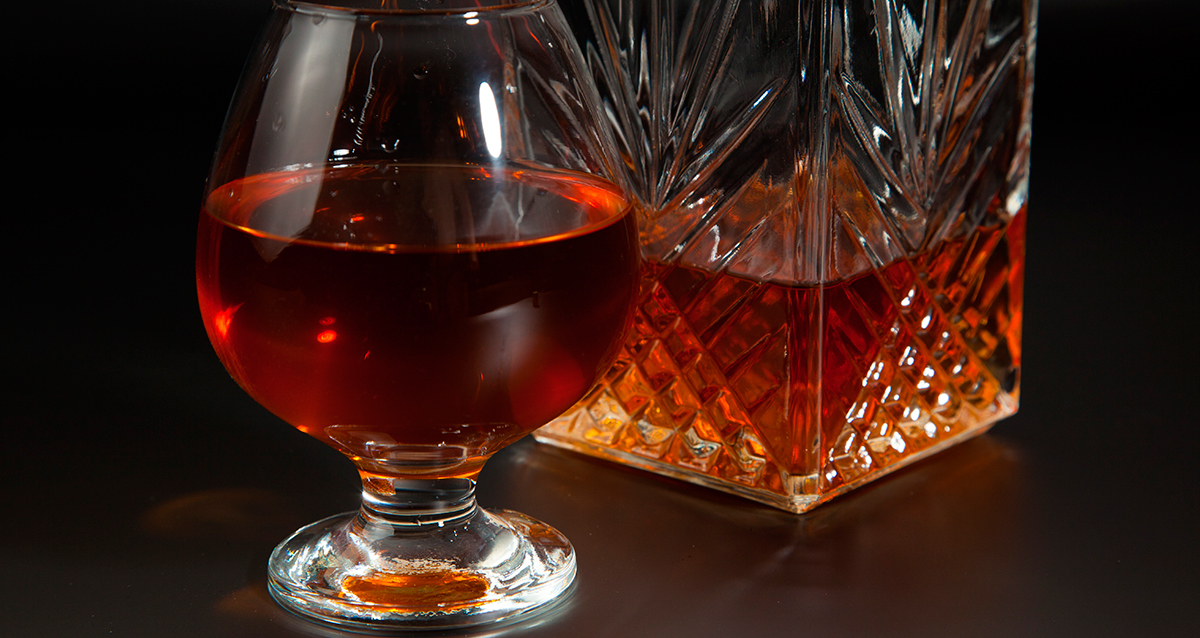
The distinctive feature of the tulip is its exquisite shape, which is difficult to associate with strong and brutal alcohol. It is used for drinking cognacs from the category:
- Superior;
- VSOP – Very Superior Old Pale;
- VO – Very Old;
- VVSOP – Very Very Superior Old Pale.
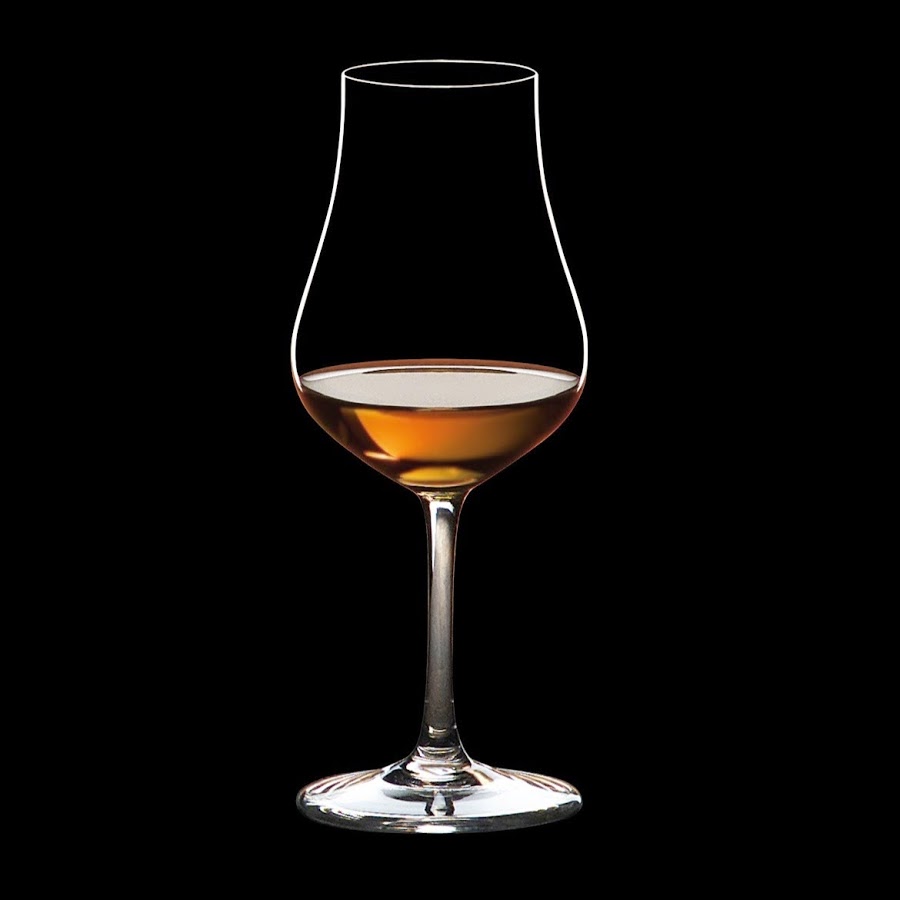
This label refers to alcohol aged for 3 to 5 years. These young drinks have a sharp aroma, which is reflected in the impression of taste. Thanks to the expanding neck, the "punching" smell quickly evaporates.
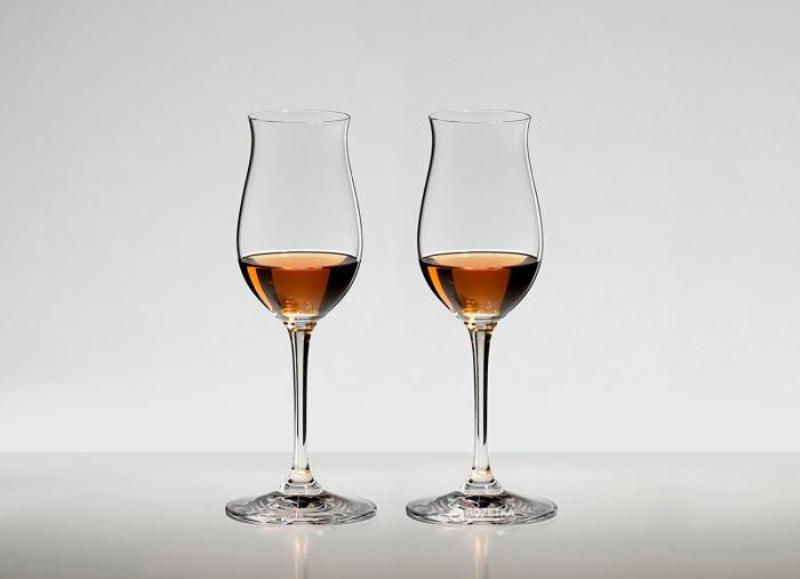
Wobble glass
The shape of the wobble is identical to the snifter. This glass has no stem. The spherical bowl is held by a pointed conical protrusion. The wobble does not have a stable position, it is constantly on its side and rolls like a tumbler. This is its main distinguishing feature, due to which the contents mix with air.
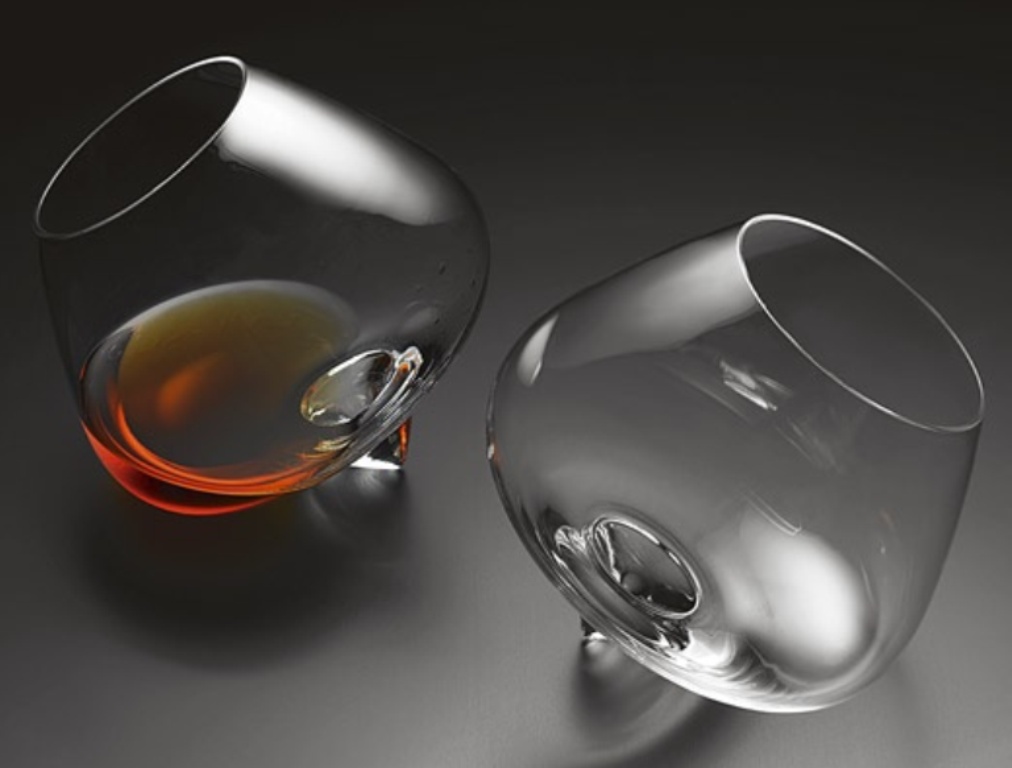
Wobble is a sensation and shock in the world of standards. Its original form is a highlight in drinking alcohol. Despite its small capacity, it is suitable for a show program and demonstration of expensive alcohol.
Pipe sniffers
The bizarre shape of this glass looks more like a souvenir glassware that is not intended for drinking. The unique design took the best from the snifter and hookah.
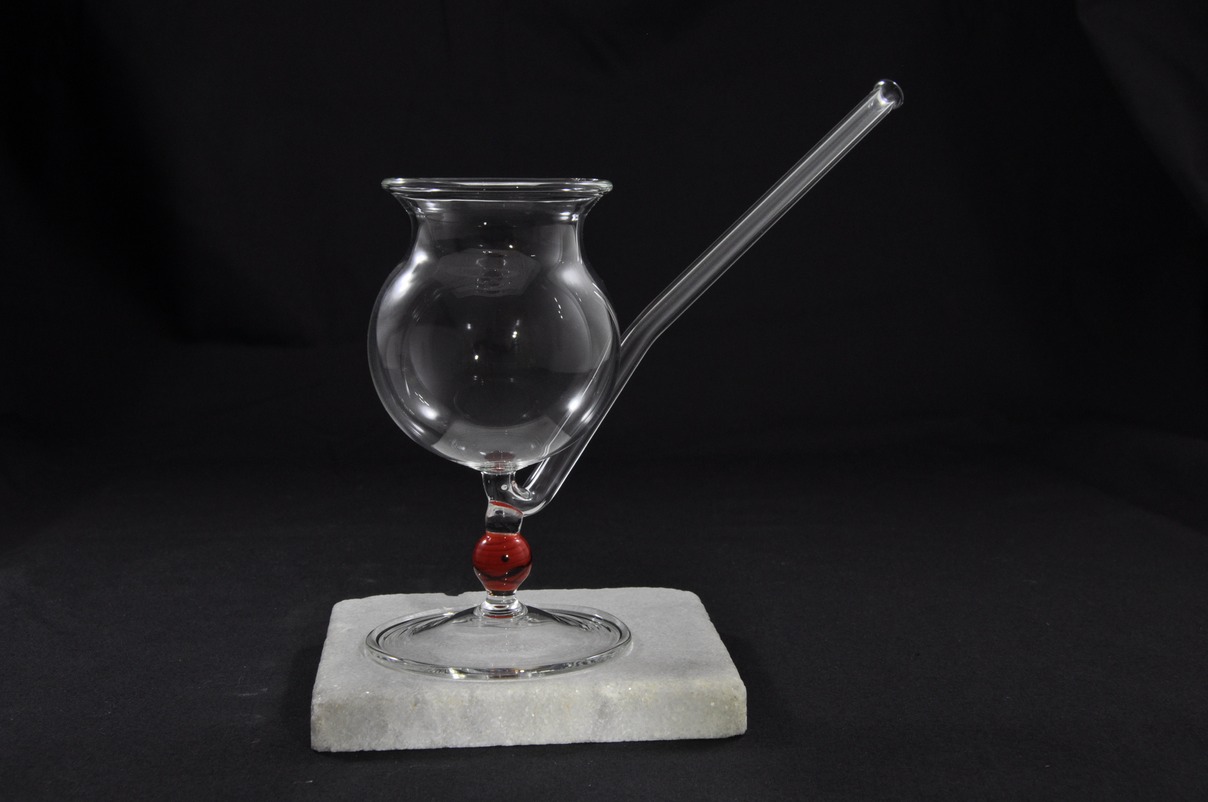
The glass is a classic snifter, with a thin long tube attached to the bottom. It also has a round, spherical bowl, a narrow neck, a low and small foot on the stand.
A pipe glass, as it is also called, allows you to clearly separate the aroma and taste components of the drink. Through a straw, the taster drinks the contents from the bottom of the glass, and then leans towards the neck, evaluates the aroma. Due to this, the smell of alcohol does not dull the taste buds.
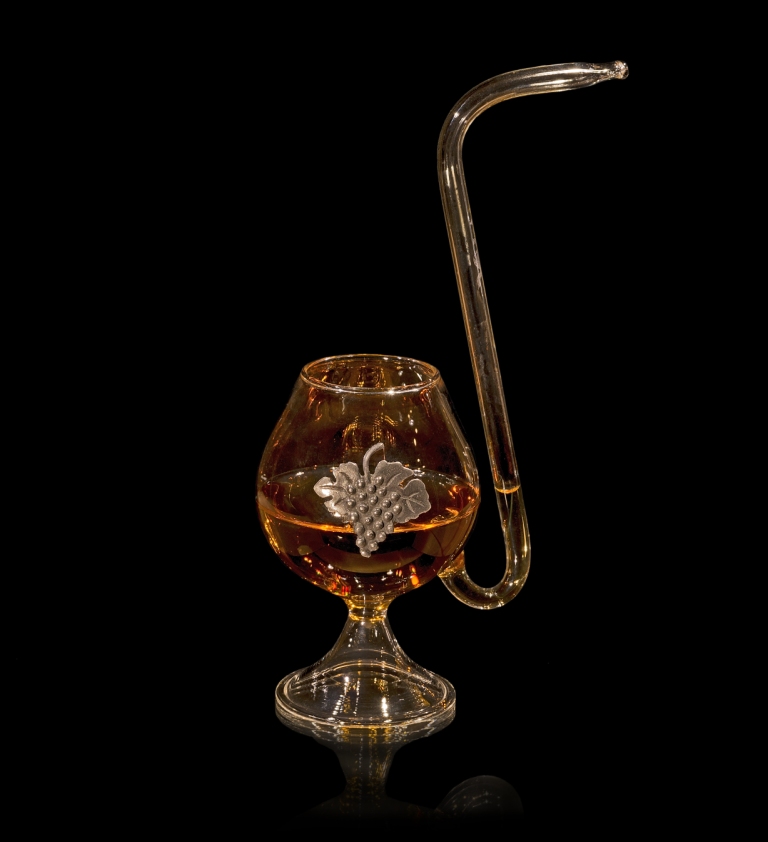
Thanks to such a glass, you can easily judge the quality of the drink and form a more objective opinion about it.
Drop-shaped glass
It is not customary to serve elite cognacs in such glassware.
Drop glasses are often chosen by collectors. They are a small, almost tiny snifter by sommelier standards. The volume does not exceed 50 ml.
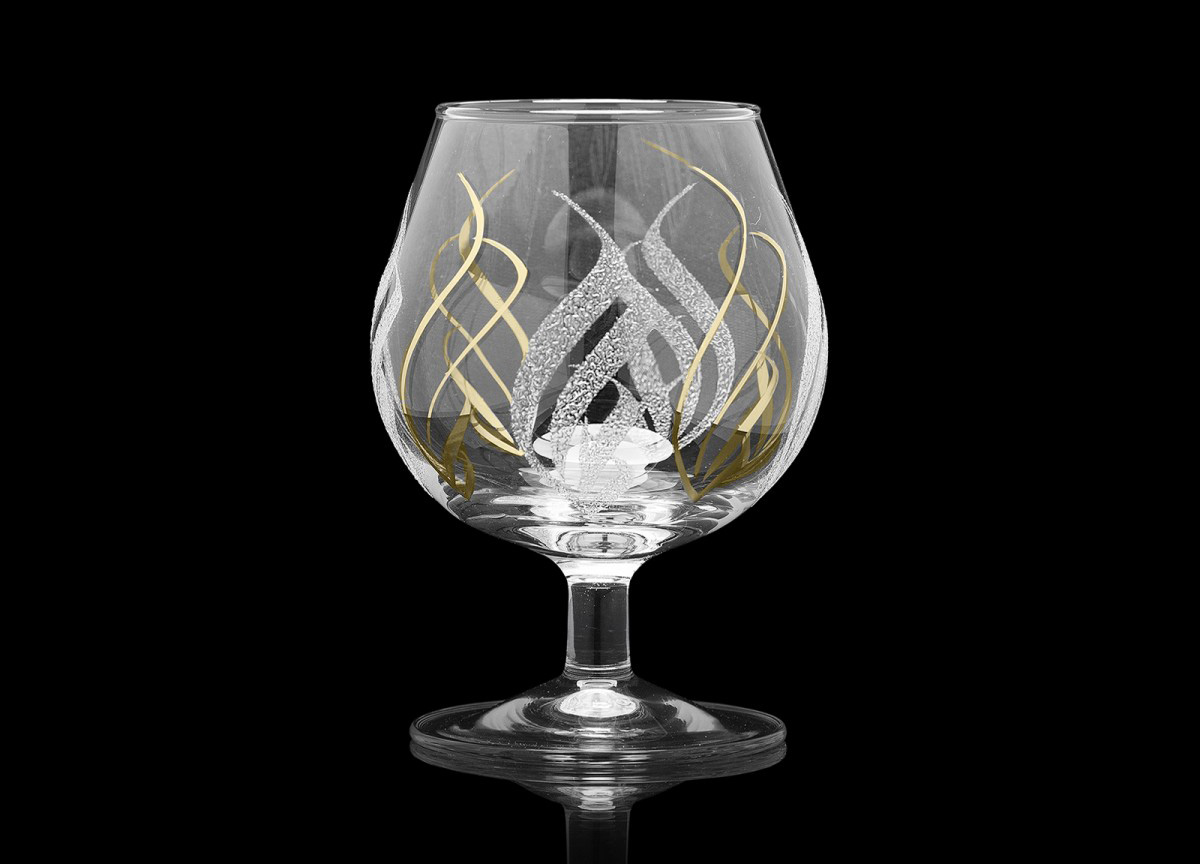
This type of drinking glass is mainly made of crystal. The price for a set of cognac glasses is quite high. They come to market in limited quantities or are made to order. They are decorated with designer cuts, gilding, precious and semi-precious stones.
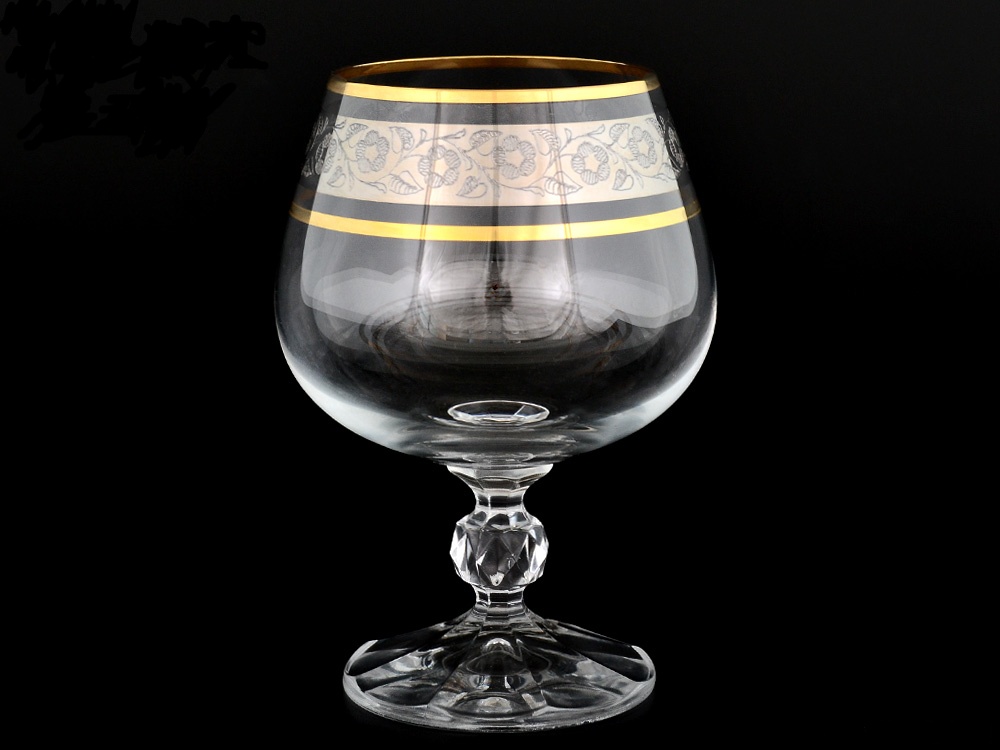
Don't forget that drinking a noble drink from ordinary glasses is equated with blasphemy. Choose which cognac glasses to try the opened bottle from. Perhaps it will be a snifter, as a tribute to the classics, or a tulip. Or maybe you like unique glasses like a wobble or a tubular goblet. Connoisseurs of glass craftsmanship and collectors of complex crystal products will like gift drop glasses, which are impossible to find in mass production.
What is correct - a glass of "cognac" or "cognac"?
According to the linguistic work of Ditmar Elyashevich Rosenthal, two forms of using the word "cognac" in the genitive case are allowed. The form with the ending -a as well as -u is appropriate.
When using a noun with a material meaning, they say "a glass of cognac." In this case, the word "glass" indicates quantity.
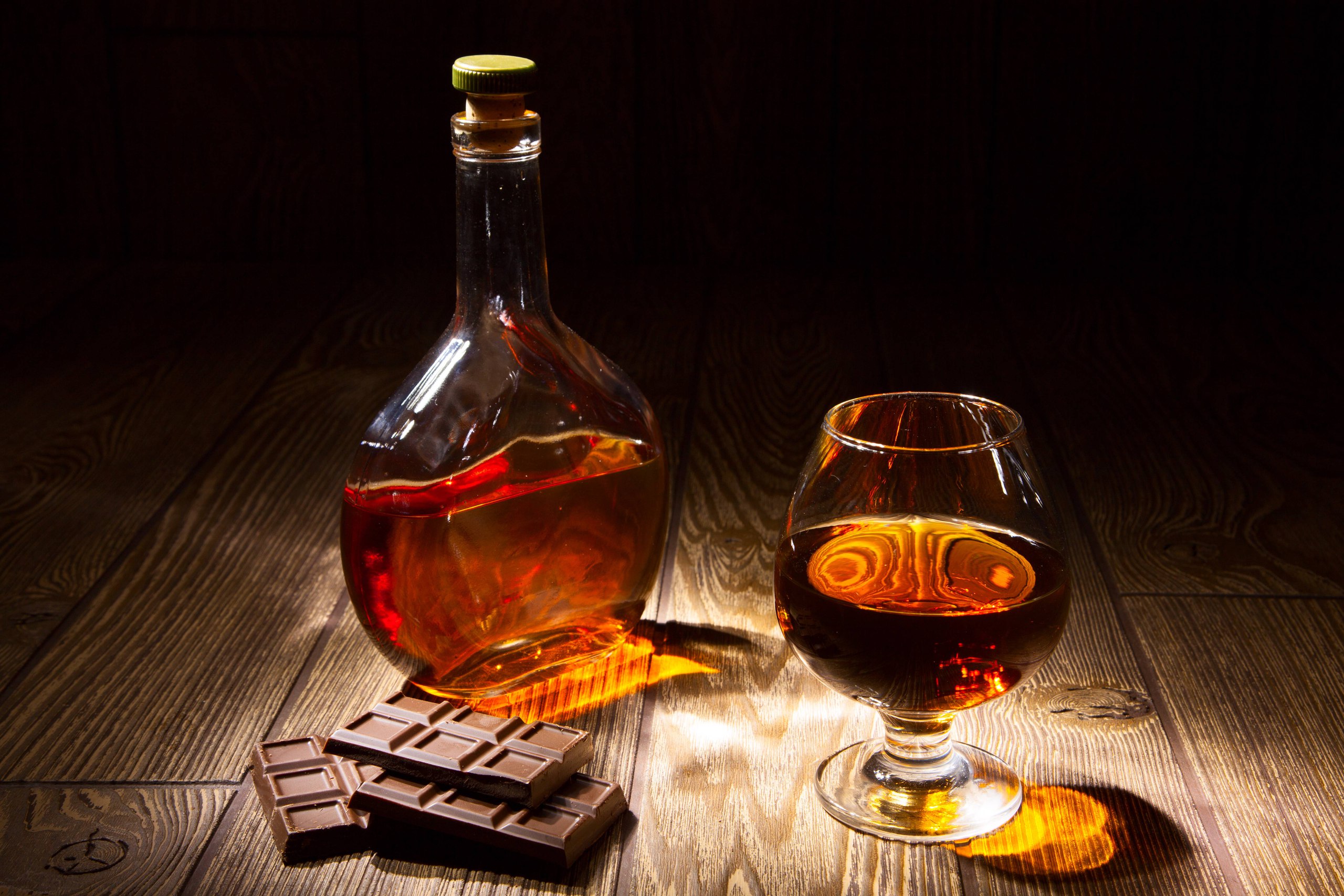
The word "cognac" is also used in colloquial speech when there is no specific quantity. For example, "Shouldn't we have some cognac?"
But if you were to characterize the drink with an adjective, the expression "a glass of cognac" would be appropriate. For example, a glass of strong cognac, but not a glass of strong cognac.
What is served with cognac?
The strong drink is usually consumed with various products that were obtained in the same region where the grapes grew. The main task of snacks is to soften the taste and shade the bitterness of the noble drink.
Popular snacks include:
- cheeses;
- desserts and pastries;
- dark chocolate;
- pink poultry meat;
- juices;
- coffee;
- exotic fruits.
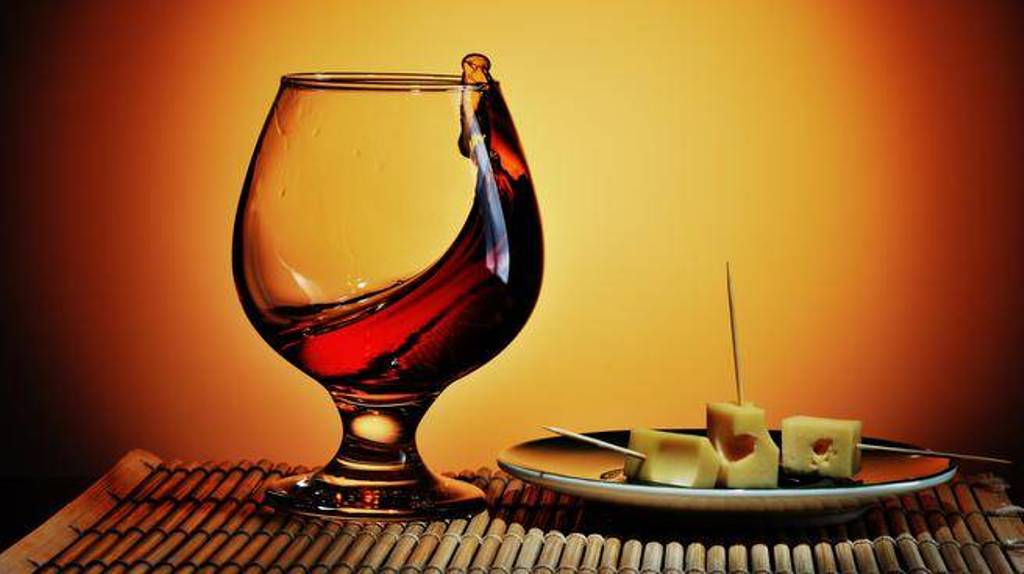
Don't know what to choose? Follow the rule of three "C": Chocolate-Coffee-Cigare. This set of snacks will allow you to try on the role of a seasoned sommelier. Dark chocolate, black coffee and a cigar are popular snacks that will highlight the taste of elite cognac.
Conclusion
The art of "drinking" is a world in which it is easy to get lost. Using the right drinking glassware, you will feel the aroma and taste of the alcoholic beverage.
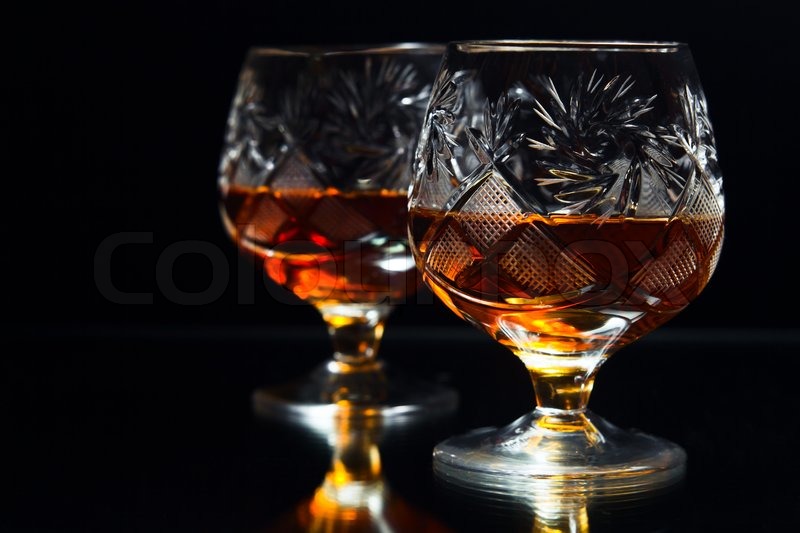

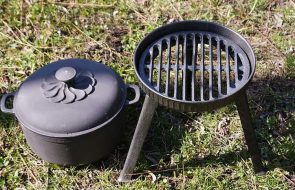
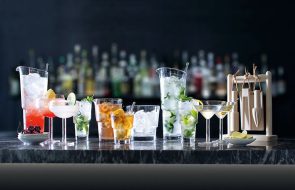
I really appreciate this drink, cognac, but to understand it, you need to reveal its essence BUT in this drink, I will say right away, one ingredient interferes - alcohol. Evaporating it by stirring is not its (the drink's) perception. Initially, the alcohol must be partially evaporated in order to fully inhale the entire aroma of the drink.